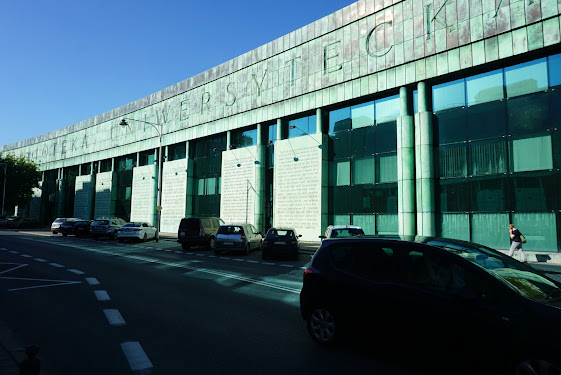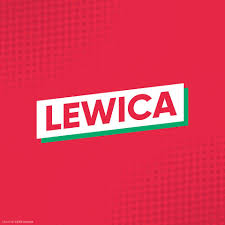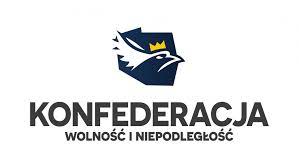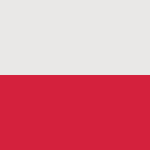Political parties in Poland
The state as of 18.05.2024. I will try to update this page when there are significant changes, but not every time an MP leaves the party. Minor inaccuracies may therefore occur.
7 parties in parliament in Poland
Overall, seven different groups are represented in the lower house of parliament, the Sejm, and almost everyone belongs to one of these groups. In the upper house, the Senate, some independent senators have formed a club.
5% threshold for political parties in Poland
Nowadays, if you want to enter parliament in Poland, you have to be in a political party. There is a 5% threshold for political parties in Poland, and parties are rewarded for being big, or vice versa – they are penalised for being small. This electoral system was implemented after the 1991 elections, when 29 parties were represented in the Sejm – including the party I would undoubtedly vote for if it still existed, “the Polish Beer Friends Party”.
Most parties consist of several groups
Today, if you represent a group that doesn’t have a lot of popular support, you try to find a coalition partner and if you have enough votes to interest one of the major parties, you often succeed in joining an electoral alliance. But small parties are often not very visible in these electoral alliances.
7 groups according to size
The 7 groups are listed here in order of size, and I remind you that the largest group is in opposition, while the government consists of four groups.
The Sejm has a total of 460 members.
PiS – Law and Justice

Established by the Kaczyński-twins
Law and Justice was established by the Kaczynski brothers in 2001, after Lech Kaczynski had enjoyed enormous popular support as a tough Minister of Justice and Chief Public Prosecutor from June 2000 to July 2001. Lech Kaczynski went on to become Mayor of Warsaw and later President of Poland, but died in a plane crash in 2010. Twin brother Jaroslaw Kaczynski has been the chairman of the party since 2003. His leadership has not been challenged and although many decisions are the result of compromise, Jaroslaw Kaczynski still makes the final decisions.
United Right
The party forms coalitions with smaller parties, and is often labelled the “United Right”. This currently includes the decidedly anti-EU faction, Sovereign Poland.
The party led a coalition government from 2005-2007 and governed alone from 2015-2023.
Ideologically, the party is characterised by an emphasis on Polishness, Christian values, traditions and a scepticism towards Western lifestyle and relativism. At the same time, the party has maintained its tough-on-crime attitude from the turn of the millennium, when Poland was plagued by gang crime.
The party is formally in favour of EU membership, but there is no doubt that large parts of the members would welcome a Polish withdrawal from the EU. The years in power 2015-2023 have been characterised by the politicisation of the justice system, with the party and the Polish state in conflict with EU institutions. Officially, the party wants an EU where co-operation is primarily based on economy and trade.
In foreign policy, the party is characterised by Jaroslaw Kaczynski’s intransigence towards both Russia and Germany, as well as efforts to emphasise Poland’s importance on the international stage, which has led to numerous clashes on foreign policy.
In terms of social policy, Law and Justice has implemented distributional measures with universal cash transfers for families with children, lowering the retirement age and extra subsidies for pensioners. In the context of inflation in 2022-2023, VAT on food has been reduced to 0% and subsidies have been provided for household energy costs.
Law and Justice is deeply influenced by the leadership of the ageing (born 1949) party chairman and there is much speculation about the party’s survivability when Jaroslaw Kaczynski is no longer party leader.
KO – Civic Coalition
In Polish: Koalicja Obywatelska. 157 members of the Sejm.

The leading party in the governing coalition with the chairman Donald Tusk as Prime Minister.
A coalition of parties
Consists of: Platforma Obywatelska (Civic Platform), Nowoczesna (Modern), Inicjatywa Polska (Polish Initiative), Zieloni (Greens).
All the affiliated parties lie within a spectrum of liberal economic policy to slightly social democratic orientation.
Civic Platform created in 2001 by Donald Tusk
At the heart of KO is the Civic Platform, which was founded in 2001 by among others current Prime Minister Donald Tusk. The party originally had a much more economically liberal profile with a slightly conservative worldview. However, the party – and perhaps Donald Tusk in particular – has moved to the left on economic policy, which today is almost social democratic. The worldview has also changed significantly and the party’s views today fluctuate with Western European centrist views.
The KO recognises the social policy changes made by the PiS government and has approved an increase in child benefits from 500 to 800 zlotys per month per child. However, the coalition is still trying to present policies that favour private enterprise.
In terms of foreign policy, KO is closely anchored in the European Union and co-operation with the US and countries in the region, including Ukraine. The rhetoric towards Russia has become harsh after the war in Ukraine and the party continues the previous government’s policy of armament and strengthening the eastern border.
In general, the party seems to be far less ideologically based than its main opponent Law and Justice (PiS), and the pragmatic line was labelled ‘hot water in the tap’ during the previous PO government (2007-2015) as an expression of the party wanting to make things work without necessarily implementing major changes.
In terms of worldview, KO is in favour of right of abortion up to 12 weeks and has implemented a “no discussion” on this topic – i.e. you’re not in KO if you don’t support this view.
Following the politicisation of the courts by the former PiS government, KO is now working with the other members of the governing coalition to reverse the changes that have been made. However, progress is slow, partly because of a president in opposition to the government and partly because it is not possible to simply revert to the old system while respecting the constitution and current laws. Here too, KO takes a pragmatic approach, in contrast to other views that would like to see more drastic and faster changes.

Warsaw the Capital – 2 hours. Price: 350 zloty
Tour No. 10 ### Warsaw is the capital of a country of 38 million people and Warsaw has all the central institutions. Click at the headline og the picture to see more.
Poland 2050 – The Third Way
In Polish: Polska 2050 – trzecia droga. 32 members of the Sejm.

As has been seen several times in Polish political history, Polska 2050 is founded by a person who almost constitutes the party. Working with coalition partner PSL, the two groups ran on a joint list and although they each have their own club in the Sejm, they speak so well of each other that you’d think they were a single party.
Party founder Szymon Holownia a former TV show host and editor, entered politics with a declaration to create “a third way”, as opposed to the KO and PiS blocs, where the antagonism is so strong that the parties don’t talk to each other. However, Poland 2050 is now firmly entrenched in the ruling coalition, but probably mainly due to the totalitarian tendencies of the PiS government 2015-2023 and their politicisation of the justice system. Ideally, the party fights for a fraternisation in Polish politics and the possibility to implement broad compromises.
Poland 2050 shows a clear love for the EU and an acceptance of the European worldview. At the same time, Szymon Holownia is deeply religious and has conservative views that are probably shared by many PiS members. He is against abortion, but refers the issue to a referendum. However, he is no more conservative than he is married to a female fighter pilot.
A key aim of Poland 2050 seems to be to support Szymon Holownia’s campaign as a presidential candidate in the 2025 elections, which is why he has been pushing hard to be elected Speaker of the Sejm – a TV-exposed position that the veteran TV host is utilising for early campaigning.
Polish People’s Party – the third way (often called the Peasant Party)
In Polish: (PSL) – trzecia droga . 32 members of the Sejm.

PSL ran on a joint list with Poland 2050 and has adopted the slogan “the third way” from Poland 2050. The two parties also share a number of common values, but while Poland 2050 draws its voters primarily from urban dissidents, PSL’s voters come primarily from smaller cities and the countryside. Here they often fight with PiS for voters.
The party has its roots in the pre-independence era of 1918, and under communist rule until 1989, the party was legal and had its representatives in the Sejm under the name ZSL as part of the repressive tolerance that was the result of so-called popular socialism. From 1990, the party was reformed under the name PSL, and from then on it has often been the centre of gravity when it comes to forming governments. The party has been part of the governing coalition for a total of 16 years between 1989 and 2024. The PSL has often been on the verge of being voted out of parliament in opinion polls, but has so far managed to clear the threshold every time.
The PSL is committed to traditional values but is far more open to the outside world than PiS and unconditionally supports Poland’s EU membership. The party is pragmatic, meaning it is ready to negotiate a solution if it can gain influence and do something for its voters. As such, the party is a traditional party of particular interests, that places more emphasis on supporting its voters and members than on major ideological battles.
PSL is even very strong in local politics in smaller rural municipalities, where they often stand for a structure where you help your friends.
In national politics, PSL is led by physician Wladyslaw Kosiniak-Kamysz, who currently holds the position of Minister of Defence.
The Parliamentary Coalition Left. I normally call them “The Left Wing”. 26 members of the Sejm. The coalition is part of the government.
In Polish: Koalicyjny Klub Parlamentarny Lewicy

It consists of: Nowa Lewica (New Left), PPS, Razem (Left Together) and Unia Pracy (Labour Union), making it a coalition that includes a wide variety of orientations.
New Left is an amalgamation of the post-communist SLD and Wiosna (Spring), some of whose members have roots in the pre-1989 communist regime. However, many years have passed since 1989, so there aren’t many of the old communists left. They also turned out to be market economy orientated when the system was changed to capitalism. Spring is formed by Robert Biedron, who has been a well-known mayor of the coastal town of Slupsk and also emphasises the fight for gay rights. He was previously a member of parliament for the Palikot movement, which may be anti-clerical and have a worldview characterised by individual freedom to smoke a joint, but Palikot’s economic policy was decidedly liberal. To summarise, New Left can be described as a right-wing social democracy with tendencies towards an interest party for voters and members.
PPS is an abbreviation for “Polish Socialist Party” and its name refers to a movement from before Poland’s independence in 1918, when Poland’s national freedom hero, Pilsudski, was the leader of the party. The party existed abroad during communist Poland, but returned to Polish politics in 1989, where it has been in coalition with various parties, mostly with the post-communist SLD. The party is left-wing, nationally orientated and sceptical of the international economic order.
Left Together is led by the charismatic Adrian Zandberg, who probably favours a hardcore socialist society. Officially, the party declares itself pro-European, feminist and in favour of democratic socialism.
The Labour Union has been in electoral cooperation with SLD for many years. It can probably best be characterised as a left-wing social democracy.
The Confederation – 18 members of the Sejm.
Konfederacja

Nationalist views
The Confederation is primarily a nationalist party, but parts of the party are also made up of ultra-liberals who want to dismantle state interference in citizens’ lives, minimal social services and freedom from taxes and social contributions.
Slightly eccentric members
The party has previously been represented by the mildly eccentric Janusz Korwin-Mikke and the ultra-conservative Grzegorz Braun is currently a member of the parliamentary group. Grzegorz Braun is known for extinguishing Jewish candlesticks in parliament with a foam extinguisher and for violent happenings if he feels Poland’s Catholic values are being violated.
Ultra liberalism and anti EU
The party’s public face is most often represented by Slawomir Mentzen and Krzysztof Bosak, who both emphasise economic liberalism.
The party is deeply Eurosceptic and parts are outright anti-EU.
The Confederation declares itself independent of all other political movements, but is probably closest to PiS and would probably form a government with PiS if the two groups were to jointly gain a majority.
Kukiz15
Kukiz15 – 3 members of the Sejm.

Former rock-star turned politician
Kukiz15 is built around rock musician Paweł Kukiz, who in 2015 won 21% of the votes in the presidential election, but later only 8.8% of the votes in the parliamentary elections. Since then, Kukiz has been further reduced and partially absorbed by PiS.
Kukiz15’s key issues are conservatism, direct electronic democracy and Christian values, as well as a single-member constituency electoral system as it is known in the UK.
Since 2021 Kukiz15 has been a supporting party of PiS and in 2023 Kukiz started from the PiS party list
In addition, there are two non-party members of parliament: The first is Adam Gomoła, who was kicked out of Polska 2050 after he allegedly tried to circumvent the rules on financing political activities during elections. The other is Monika Pawłowska, who was elected from PiS but not admitted to the group after she took the seat of a PiS member who was expelled from parliament following a conviction for criminal offences. This expulsion is not recognised by PiS and Monika Pawłowska has taken her seat in parliament against orders from PiS.
Please send an email to m@hardenfelt.pl if you would like a English-speaking tour guide to show you the most important places in Warsaw.

